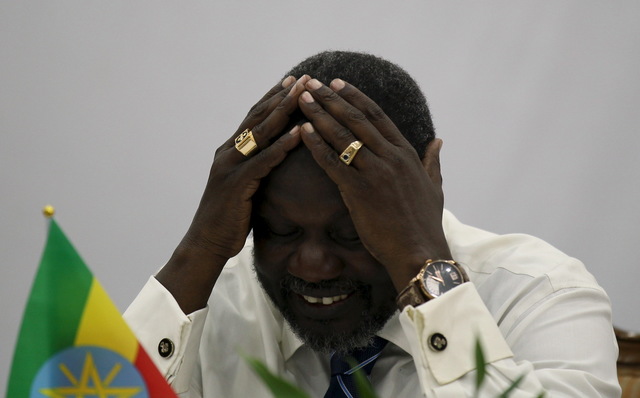South Sudan and rebels say deal reached for Machar’s return

By Reuters
South Sudan’s government and rebels said on Wednesday a deal had been reached to let rebel leader Riek Machar return to the capital to form a unity government, resolving differences that led to a delay this week that had worried peace monitors.
Rebel spokesman James Gatdet Dak told Reuters by telephone from Nairobi that Machar, who had been due to return early this week before the latest in a series of delays since last year’s peace deal, was now expected to fly into Juba on Thursday.
Machar and his rival, President Salva Kiir, signed an agreement in August to end a two-year conflict in which thousands of people have been killed and more than two million forced to flee their homes. But clashes have flared since then.
The United States and the U.N. Security Council have both voiced concern over the latest delay to the return of Machar, who is due to take up the post of First Vice President next to Kiir as part of a power sharing deal.
The body monitoring the peace deal, the Joint Monitoring and Evaluation Commission (JMEC), which includes Western powers, African representatives and others, also said it was worried.
“I’m happy to announce to you that we as a government have accepted that Riek should come with 195 (members of his) forces accompanying him and his chief of staff,” Peter Bashir Gbandi, acting foreign minister, told a news conference in Juba.
A government official earlier said Machar was held up because he had wanted to bring equipment and troops into Juba in excess of what was agreed with Kiir’s camp. Machar told Al Jazeera television the government was creating “obstacles”.
“We have given him clearance also for all the three planes that are coming with him,” Gbandi said, without giving a timing.
Kiir’s sacking of Machar as his deputy in 2013 precipitated the crisis that led to a conflict in December 2013. Fighting has often run along ethnic lines, pitting Kiir’s dominant Dinka ethnic group against Machar’s Nuer.
The conflict, which erupted barely two years after South Sudan’s independence in 2011, has hammered the economy and left swathes of the 11 million population without enough food.
Oil production, South Sudan’s main source of revenue, has tumbled as oil fields have been cut off and global prices have dropped.